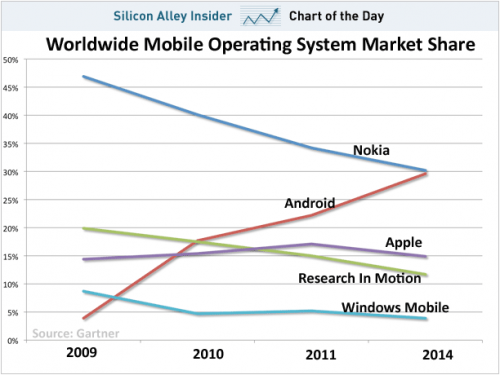“To improve is to change. To be perfect is to change often.” – Winston Churchill
The theme of the 2012 Skoll World Forum is “Flux: seizing momentum, driving change”, which I think is a fantastic one. We’ve never had such upheaval in the way businesses work, in how citizens interact with government, or in how information flows in the world. It’s about change, and survival in a time of flux is best done through agility and creativity.
“As an operating paradigm, it expresses the fluid nature of relationships, policies, institutions and human beings which are ever changing in non-linear ways.”
Thriving on Acceleration
The world we live in today is accelerating, in just about everything we’re seeing disruptive models and changing norms. We’ve always had change in the world, it just hasn’t moved this fast before. Lucas Welch of Soliya put this best when we spoke today, explaining how people tend to meet this accelerating change in two ways; terror with its built in threat response activities, or embrace it as a new norm with the agility needed to move with it.
As Hans Rosling so masterfully showed us yesterday, we’re seeing a population shift, where the majority of the world’s population is in Africa and Asia, and how the West (a term difficult to define) needs to come to grips with the power shift from West to East.
“Strategy is your portfolio of experience” – Bill Brindley
I had an interesting discussion with Bill Brindley, the CEO of NetHope, where we were talking about how leaders of organizations today need to be a lot more fluid with their strategy. It isn’t enough to have a lot of books and an expensive university degree any longer (has it ever?), now, more than ever a leader needs to build on their experience. How those who run organizations need to engage and adjust on the fly when the paradigms shift underfoot.
For the entrepreneurs on the forefront of disruption, the real innovators who are responsible for breaking the status quo, they are able to better sense the change and adjust to it than others. They often fight an uphill battle getting people to understand what’s going on, to understand their business and to fund it. As Gordon Brown reminded us, through a quote by Albert Einstein, “No problem can be solved from the same consciousness that created it“, which is why so many of the new solutions sound so crazy and struggle so much… until they win.
Technology the Foundational Change Agent
Underlining the changes we see shaking the foundations of the way the world has traditionally worked, is technology. 87% of the world’s population has a mobile phone. The cost of accessing the internet has continued to speed up and decrease in costs across the globe. These basics; devices and data flow, are the foundations upon which ordinary people have built new companies, have leveraged for social and regime change, and are adjusting the dynamics of how communities interact everywhere.
Nigel Snoad of Google’s Crisis Response team talks about the “consumerization of IT”, where devices and data are widespread throughout society and the impact this is having on every sector, not just for disaster relief. Robert Kirkpatrick of the UN’s Global Pulse team talks about “digital exhaust”, all of the data and signals put out by people using mobile phones and the web, and thinks of how it can be captured and used to improve the planning that both UN bodies and governments do.
I can’t help but think that our changing world is driven on technological shifts, and that their solutions will have technology as part of their answer. For instance, with this aforementioned data overload issue, we can’t wish for technology use to decline, instead we need to find ways to harness the same tools to make sense of it.
Entrepreneurs in a time of Flux
When I look at the entrepreneurs in Oxford I’m energized, because what I see is a new generation of leaders who are looking at some of the worlds most difficult problems in new ways. They don’t see problems, they see opportunities and challenges that can be overcome in the midst of the flux that upsets many of their peers. They flip the “known” on its head and they refuse to accept norms as something that applies to them.
When I look at the flux in the world, I’m excited, as it provides room for the misfits – it gives breathing room to the crazy ideas and those that hold them to move, to act and create. While this flux brings down industries and regimes, it also provides a chance to build up new solutions that benefit a greater number of people. If anything, that’s what this Skoll World Forum is about, it’s about giving a space and a chance to the new thinkers to emerge and find the few others that might believe in them enough to support them as they tilt at windmills.





